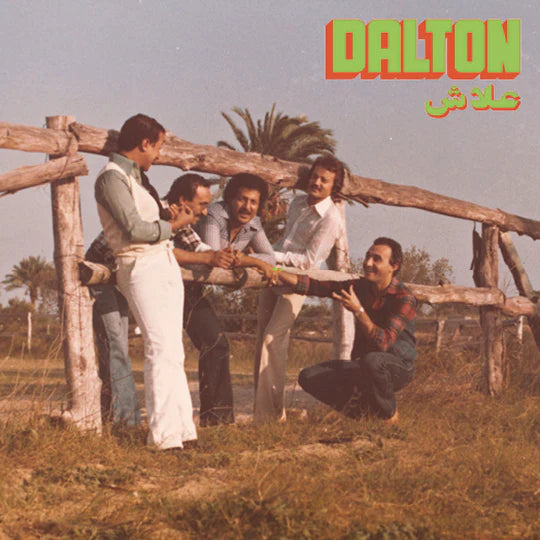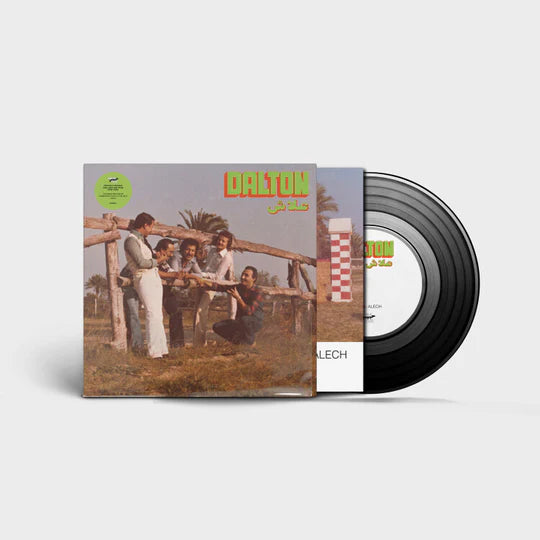

Dalton - Alech b/w Soul Brother
Dalton - Alech b/w Soul Brother
2225 Plank Rd.
2225 Plank Road
Fredericksburg VA 22401
United States
Choose options
Tracklist:
A: Alech
B: Soul Brother
Label: Habibi Funk
Catalog: HABIBI001
Import
Dalton’s "Alech“ single was our first release as a label in 2015. In the years before we had started to get into Arabic records we came across a Moroccan singer called Fadoul and, after some time, we decided to try to find him to get his blessing to re-release his music. Sometime during this search, we came across a copy of Dalton’s single and we immediately fell in love with it. While it was only a 7“ single with 2 songs it was the perfect mix. An upbeat and infectious a-side, paired with a mellow and soulful b-side. While the search to learn about Fadoul took us years, Dalton’s band leader Fawzi Chekili was just one online search away and within minutes we found his profile on social media. We reached out to him presenting the idea of a reissue and he was with it from the get go. Dalton was a band from Tunis, the capital of Tunisia. They came together as a band around 1968 when most of the members studied together at the University of Tunis. The members changed frequently in the beginning until the key members came together: Fawzi Chekili on guitar, piano and vocals, Ridha Kouhen on bass guitar, Mustapha Rehouma and sax and percussion, Sadok Gharbi on trumpet and vocals and Skander Alim on drums and vocals. In the early 70s, the band got a regular gig at a beach hotel called Sahara Beach Resort on the coastline of Tunisia. While the hotel gig required the band to play sets leaning towards tourist entertainment, the regular work helped put some money into the band's accounts. Using those funds the band was able to travel to Rome to record their one and only 7“ single release "Alech" around 1971/1972. While the b-side "Soul Brother“ sounds like a Tunisian version of modern soul / AOR with its English lyrics and lush arrangements, the title track "Alech“ is the one that will get every party started. The band eventually dismantled in the mid 70s and returned briefly as a new group with new members in the late 1970s under the name Carthago.
